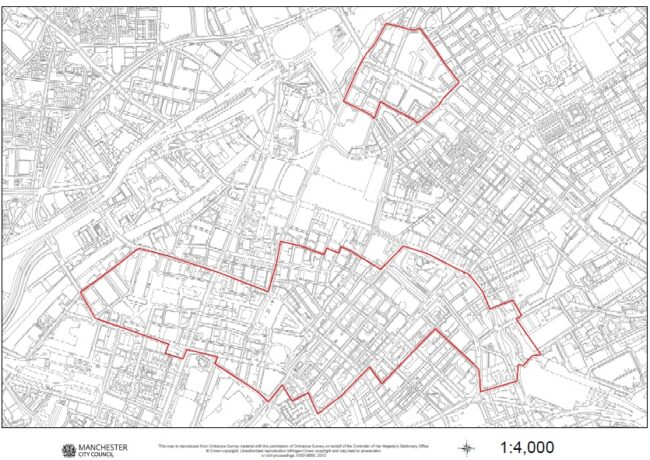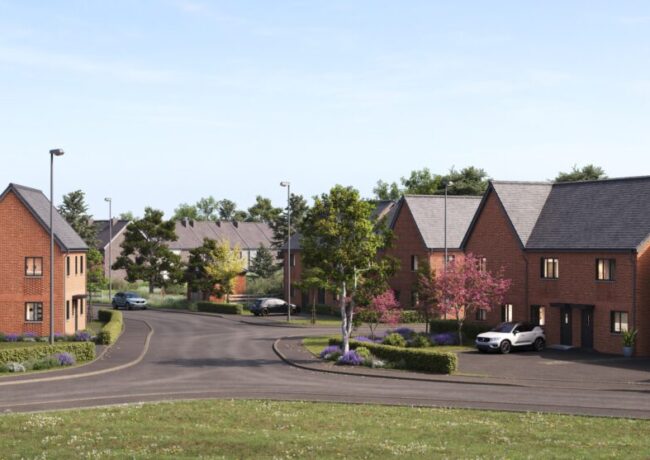Pickles protects Manchester from office-to-resi ruling
Two areas of Manchester city centre will be exempt from sweeping new permitted development rights that could trigger a wave of office-to-residential conversions.
Manchester City Council successfully argued for the business district stretching from Spinningfields to Piccadilly and for the Co-operative Group's emerging Noma development to be kept out of the new regime which comes into force on Thursday 30 May.
Ruairidh Jackson, director of strategy and development at NOMA, said: "Manchester City Council discussed the issues arising from the proposed relaxation of planning laws with the NOMA team. The council has a well-established track record in backing high-quality regeneration, approving development and refurbishment proposals that serve to realise that aim. The NOMA project is fully supported by the council and we value that partnership. We do not consider that introducing a limited relaxation of planning regulations to change the use of buildings would provide any significant benefit to the scheme and could, in the longer term actually jeopardise our ambition to create a sustainable, mixed use, high quality neighbourhood."
There will be 17 areas nationwide where the rules don't apply, mostly in London. Liverpool City Council was among local authorities that applied for, but failed to gain, exemption from the easy office-to-resi measures.
The new permitted development rights announced by Eric Pickles, Communities Secretary, on Thursday, will enable offices to be converted in to homes without planning permission.
Pickles described it as "an opportunity for office owners and developers to bring outdated and underused buildings back to life and create much needed new housing."
In yet another attempt to boost the high street, a recommendation in the Portas Review will be adopted – high street premises will be able to be used for new types of business without permission.
In rural settings, existing agricultural buildings of less than 500 sq m will be able to be take on new uses such as shops or offices. Existing agricultural buildings under 500 sq m can change to a number of other business uses. For buildings between 150 sq m and 500 sq m, prior approval will be required, to ensure that the change of use "does not create unacceptable impacts such as noise or transport problems."
The requirement for prior approval of siting and appearance of fixed broadband infrastructure will be relaxed for five years to encourage operators to invest in provision in rural areas.
New measures will also facilitate the conversion of existing office and hotel buildings among other types to become state-funded schools.
Buildings that are classed for use as retail, financial services, restaurants, pubs and hot food takeaways, offices, leisure and assembly uses can temporarily change to another use class. They can be used for retail, financial services, restaurants and cafes and offices for a single period of up to two years.
The Government will increase the thresholds for business change of use, increasing from 235 sq m to 500 sq m for change of use from offices and general industrial use to storage and distribution, and from general industrial and storage or distribution to offices. This will help provide vital flexibility to enable the quick responses necessary to support business growth.
Premises that are offices, hotels and assembly or leisure use classes are able to change use permanently to a state-funded school, subject to prior approval covering highways and transport impacts and noise. A temporary permitted development right is being introduced which allows a building in any use class to be used as a state-funded school for one academic year to help deliver new schools and allow for minor associated physical development.
The secondary legislation amends the Town & Country Planning (General Permitted Development Order) 1995. The statutory instruments come into force on 30 May 2013.
There are areas in 17 local authorities in England consisting of individual buildings, roads or zones that are exempt from new rights to convert offices to homes, following careful assessment of all the cases submitted. They are in the City of London and the London boroughs of Camden, Islington, Hackney, Tower Hamlets, Southwark, Lambeth, Wandsworth, Westminster, Newham, and Kensington and Chelsea. Other areas are in the borough councils of Vale of the White Horse, Stevenage, Ashford (Kent), the district councils of Sevenoaks and East Hampshire, and Manchester City Council.





Massive changes afoot. I like it. Is this the start of government push to get money in people’s pockets in time for general election?
By Massive
UPDATE: Adds links to further information on DCLG website and quote from Ruairidh Jackson, director of strategy and development at NOMA.
By Ed